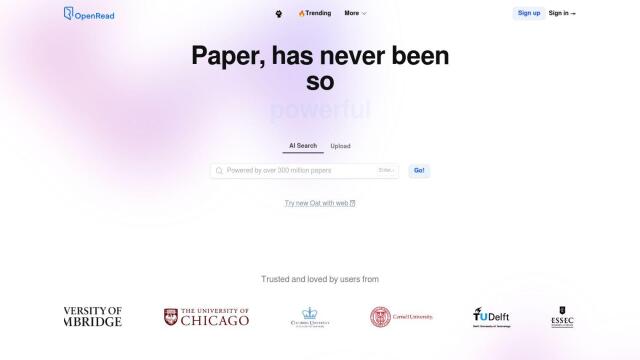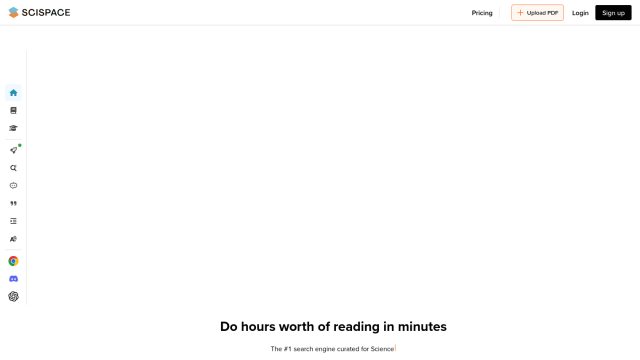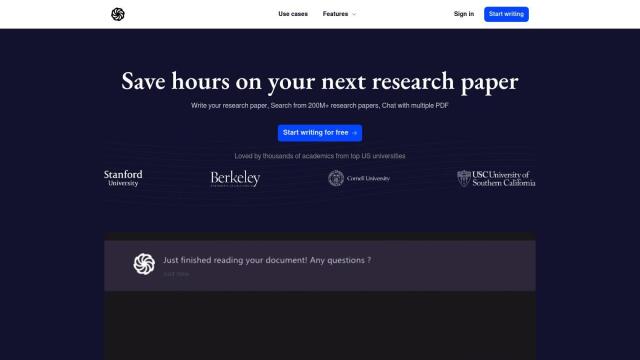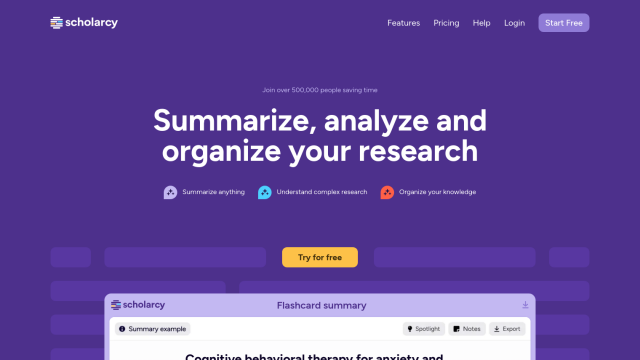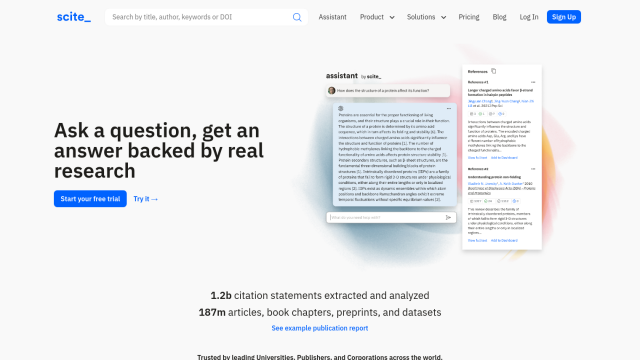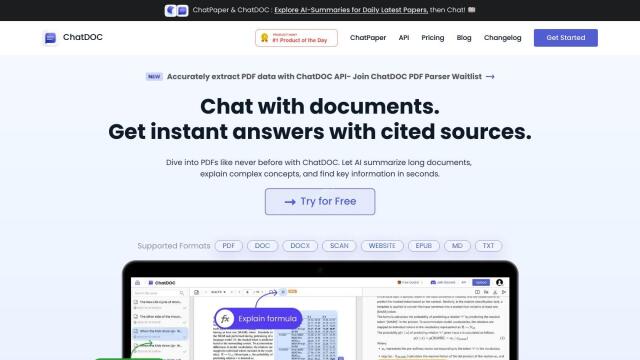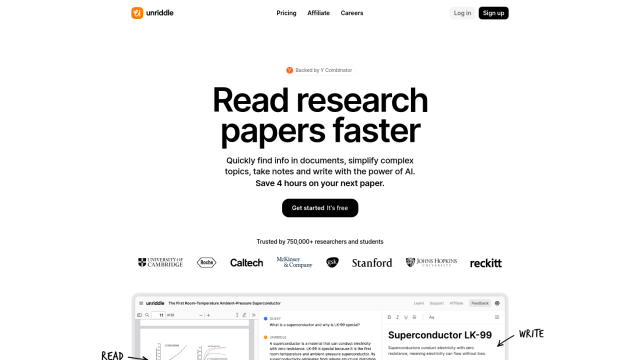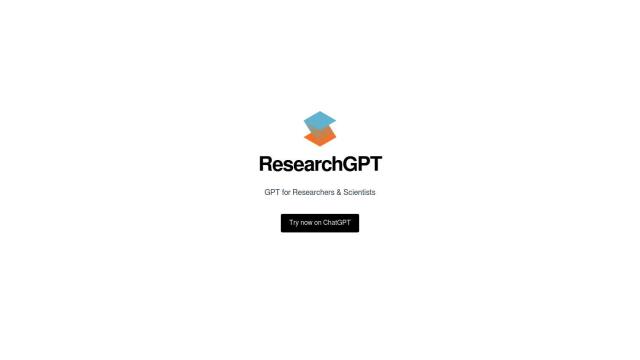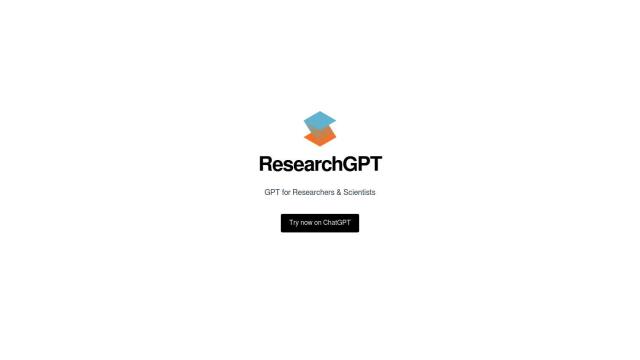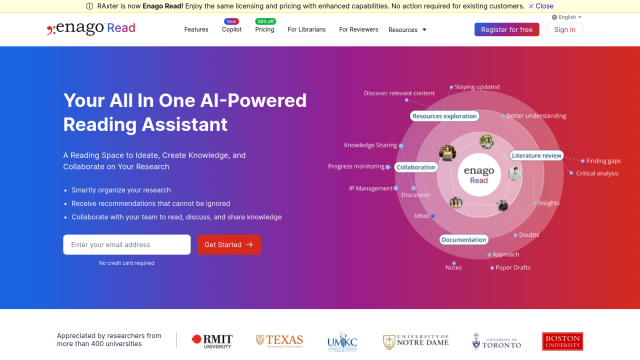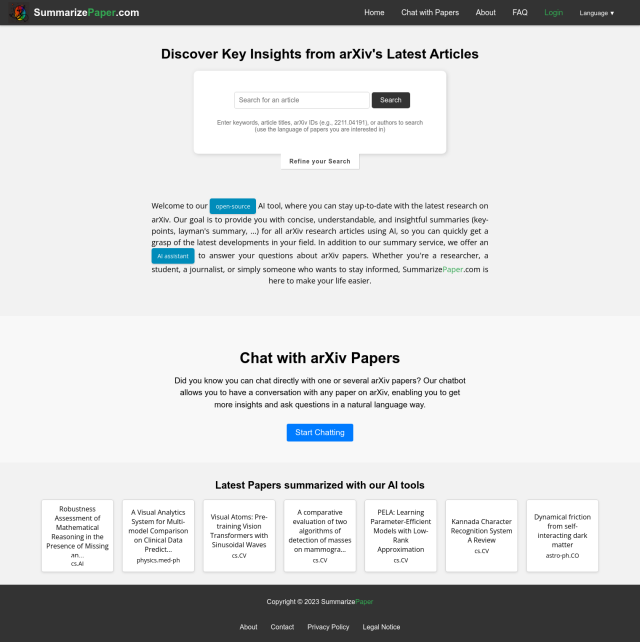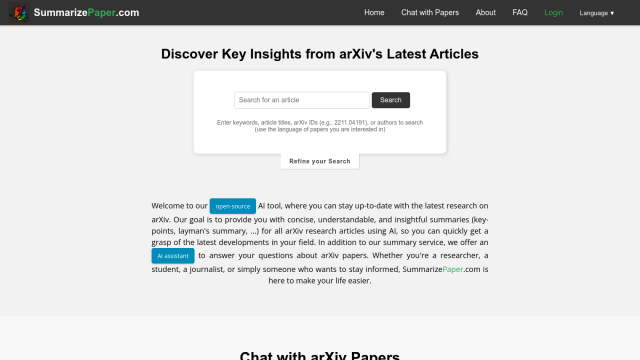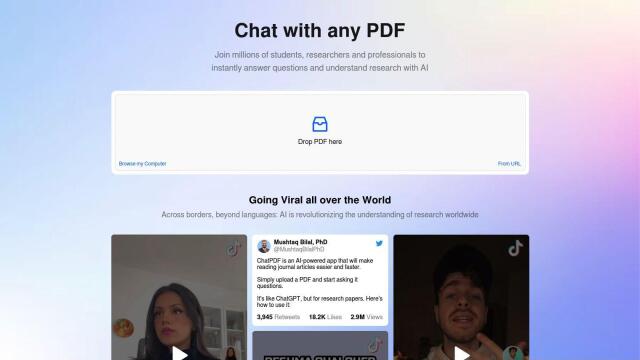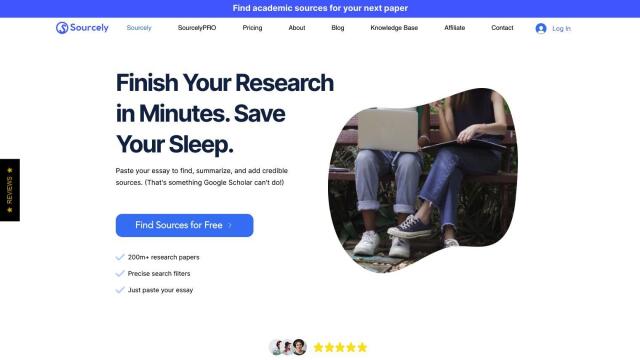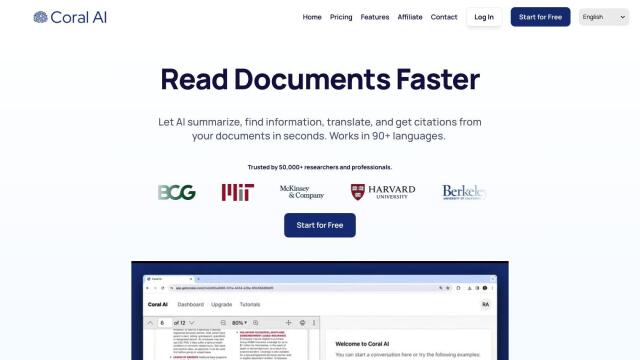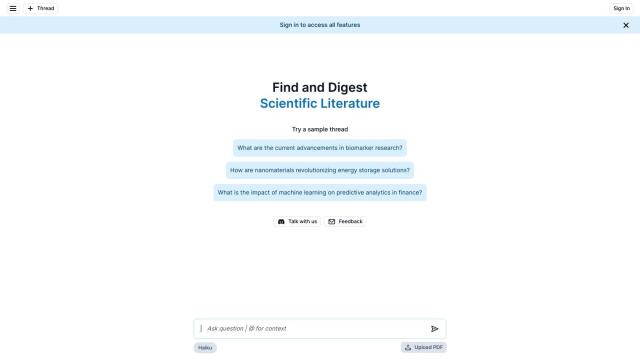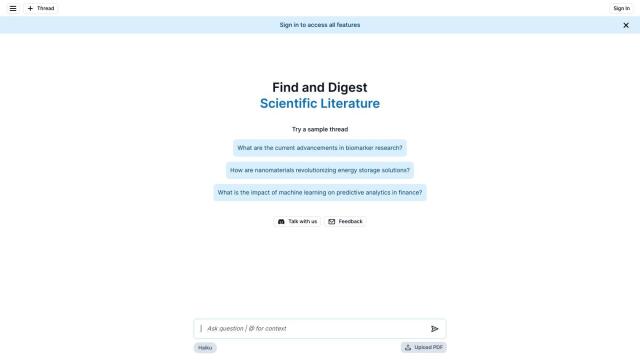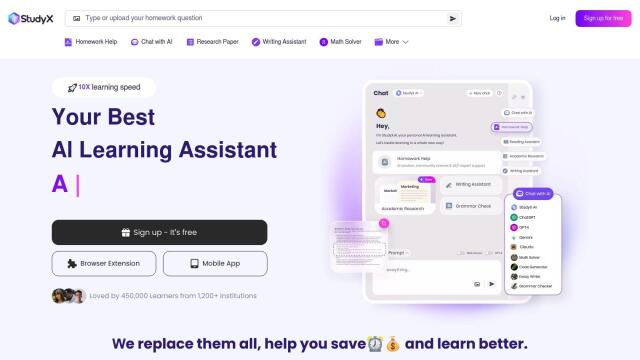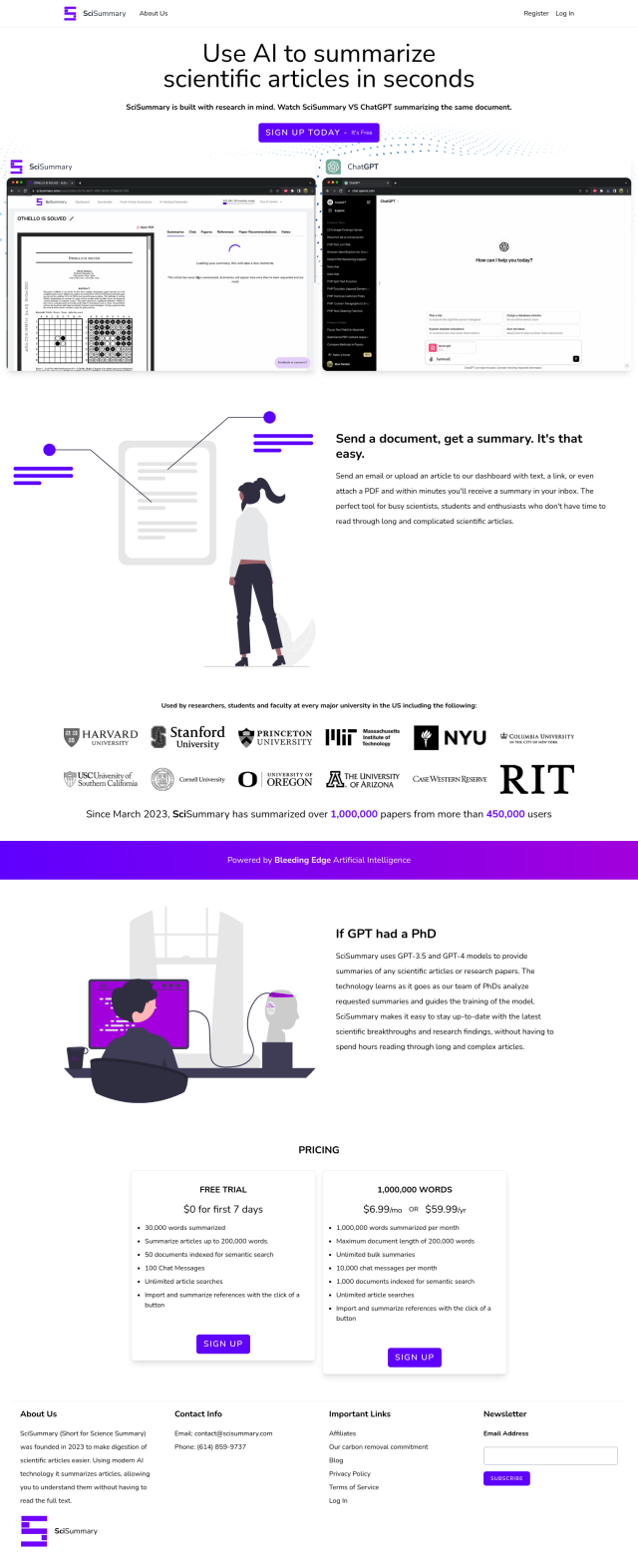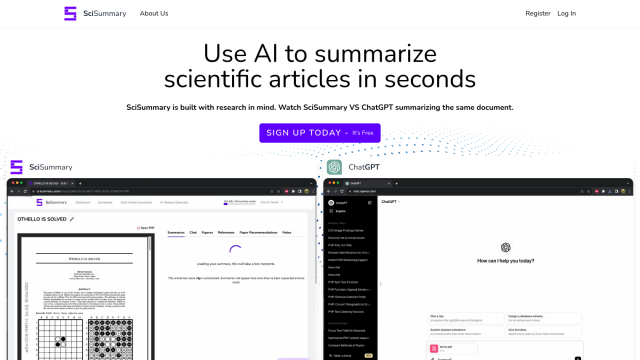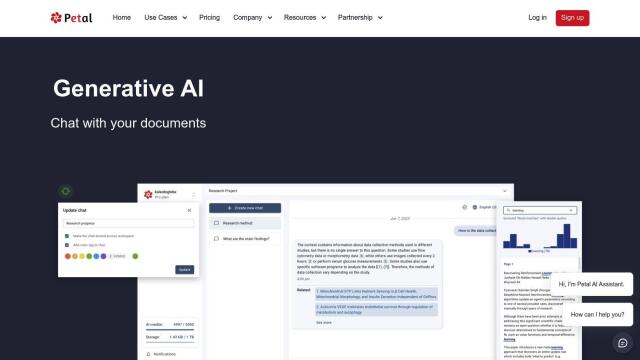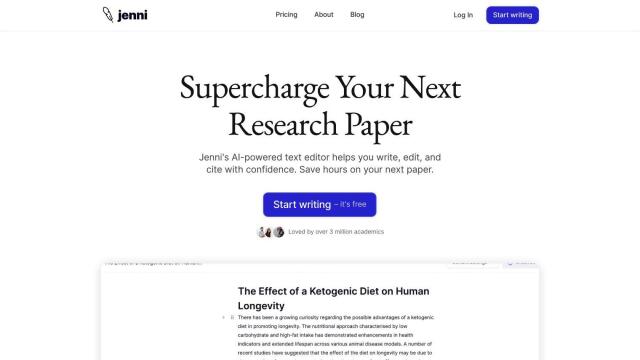Question: Is there a search engine that supports multiple languages and provides real-time answers for researchers and students?
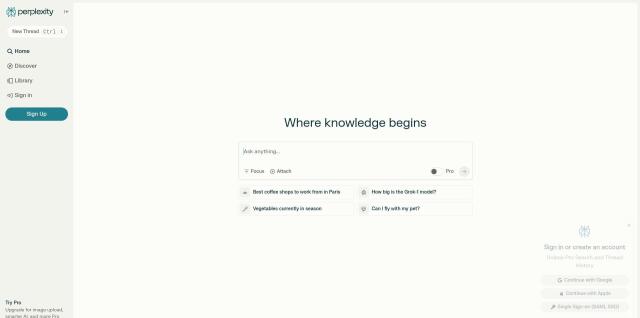
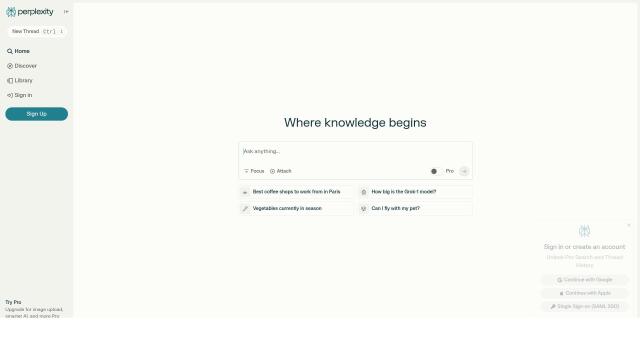
Perplexity
If you're looking for a search engine that spans multiple languages and offers real-time answers for researchers and students, Perplexity is a good choice. It offers authoritative and trustworthy real-time answers to any query and supports multiple languages including English, French, German, Japanese, Korean, Simplified Chinese, Spanish and Hindi. Perplexity also offers file upload and analysis, AI-generated image tools, and customizable AI models like GPT-4o, Claude-3 and Sonar Large (LLaMa 3). It offers a free tier with limited functionality and a Pro tier for $20 per month that includes unlimited Pro searches and larger file upload.
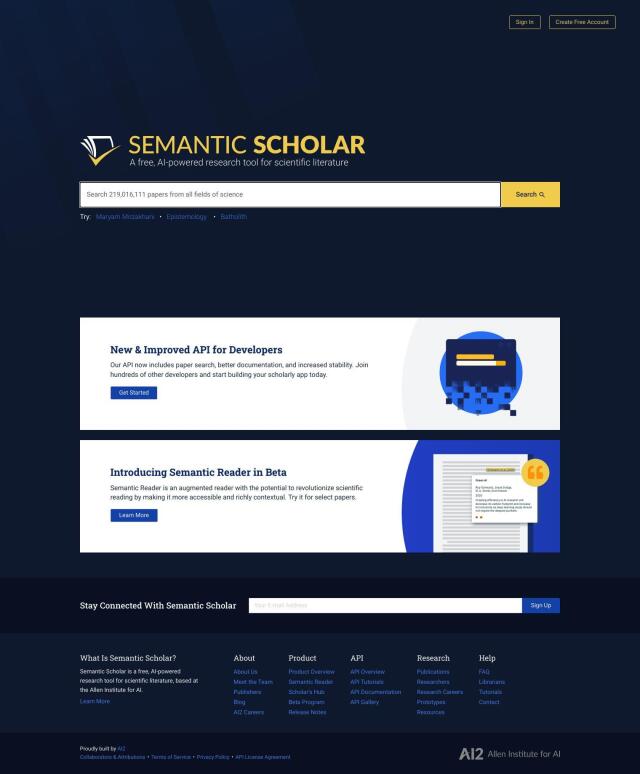
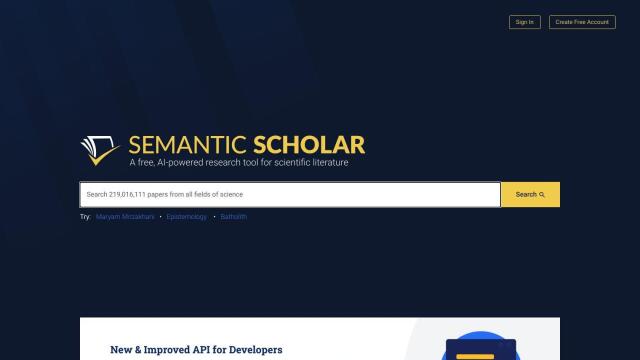
Semantic Scholar
Another good option is Semantic Scholar, a free AI-powered research service that lets scholars search and read relevant scientific papers from a large corpus. Semantic Scholar has powerful search filters, brief summaries (TLDRs), tools to cite papers, manage research and generate AI-powered research feeds. It also offers AI-generated definitions, answers to questions about papers, and an open resource API for developers. The service is geared for researchers and developers who don't have to pay for subscriptions or tiered pricing.

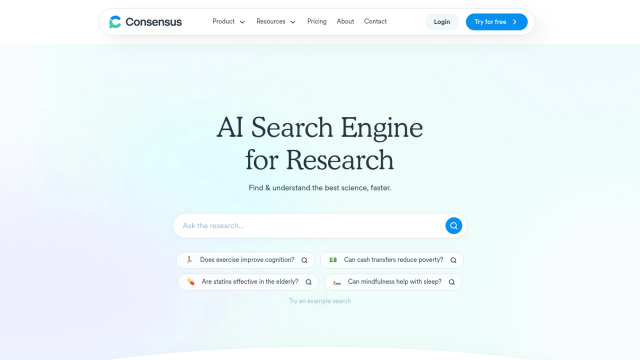
Consensus
Consensus is an AI-powered academic search engine that can help you quickly find and understand the most relevant science and research papers. It indexes more than 200 million papers across all subjects and offers AI insights, proprietary search tools and filtering options. Consensus is good for students, researchers and companies that need to automate literature reviews and get authoritative answers. It offers multiple pricing tiers, including a free option, for different needs.

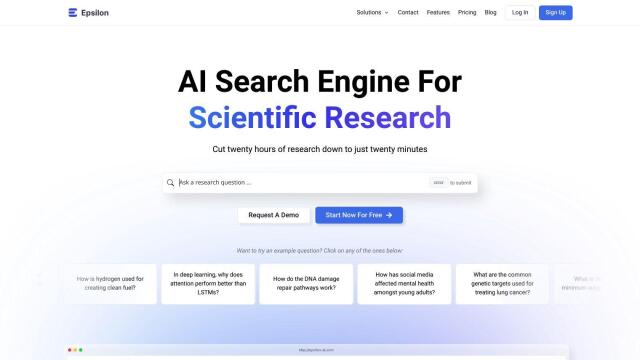
Epsilon
For those who want a tool to speed up scientific discovery, Epsilon offers summarized answers with inline citations, content summarization and key information extraction from multiple papers. Epsilon indexes more than 200 million academic papers and offers multiple pricing tiers, including a free option with limited searches and a Student tier for unlimited searches and GPT-4 access. It's good for researchers who want factual and authoritative results from academic literature.



